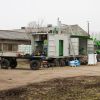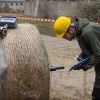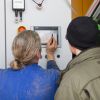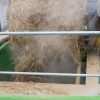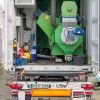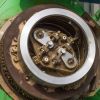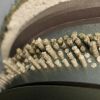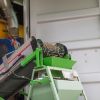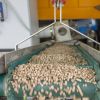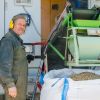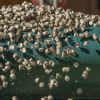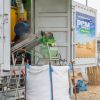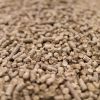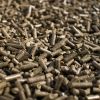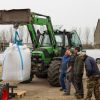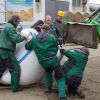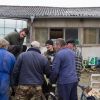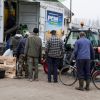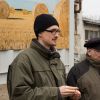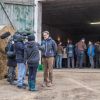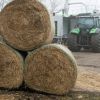Paludi-Pellets – sustainable fuel from wet lands
The Paludi-Pellets-Project aims at making wet biomass from wet lands a dry energy resource. As growing demand for food and energy puts increasing pressure on land mankind has to consider every form of utilization for every piece of available land, including rewetted peatlands. How to transform sedges, reed and canary grass into pellets and briquettes and how to use these most efficiently is thus subject to investigation at the Institute of Botany and Landscape ecology at Greifswald University.
For utilizing biomass from rewetted peatlands Mecklenburg-West Pomerania offers promising potential. About 300,000 ha, approximately 12 % of its area, are covered by peatlands. Nearly all of it being currently drained for farming – with disastrous effects such as soil degradation, subsidence and disproportionally high greenhouse gas emissions. Farmers are confronted with high drainage costs, yields drop and ultimately productive land is lost.
An alternative to conventional agriculture on drained organic soils is paludiculture (palus lat. swamp, cultura lat. cultivation), the sustainable and productive utilization of rewetted peatlands. It combines climate protection, preservation of land and production of renewable resources for energy without competing with food production. Locally grown sedges, reed and canary grass may thus become substitutes for fossil fuels. The federal state’s potential paludi-biomass is estimated a 1.5 million tons per year. Also, paludiculture favorably meets requirements of the Mecklenburg –West Pomeranian “Energy region/state 2020”- guideline. This aims at combining the federal state’s energy policy and climate protection, at reducing greenhouse gas emissions as well as creating employment and added value. The guideline emphasizes the security of energy supply and relinquishment of fossil fuels, too.
Auspicious terms to have applied research pave the way for a market launch of pellets and briquettes from biomass of rewetted peatlands. The Paludi-Pellets-Project therefor tests the compaction of the paludi-biomass and its combustion while monitoring combustion properties and emissions in various boilers. Since the economic assessment of paludi-biomass for thermal utilization is essential for interested entrepreneurs and farmers the project develops a calculation tool based on data from agricultural experience on (rewetted) peatlands and case scenarios. Additionally, the potential in area and utilization is assessed starting from agricultural cultivation to industrial pellet-production. Last but not least the Paludi-Pellets-Project makes considerable effort to get the message out to the public: Fossil is finite – go local – welcome the weet! Pellets and briquettes from paludi-biomass will tap a local, climate protecting, renewable energy source!
Pictures 'Mobile pelletizing'
For this project 110 bales of reed and sedges were pelletized within three days in March 2014. On the 6th of March 2014 the mobile pellet production was presented in a public event in Neukalen (MV, Germany). (Pictures by Philipp Schroeder)










